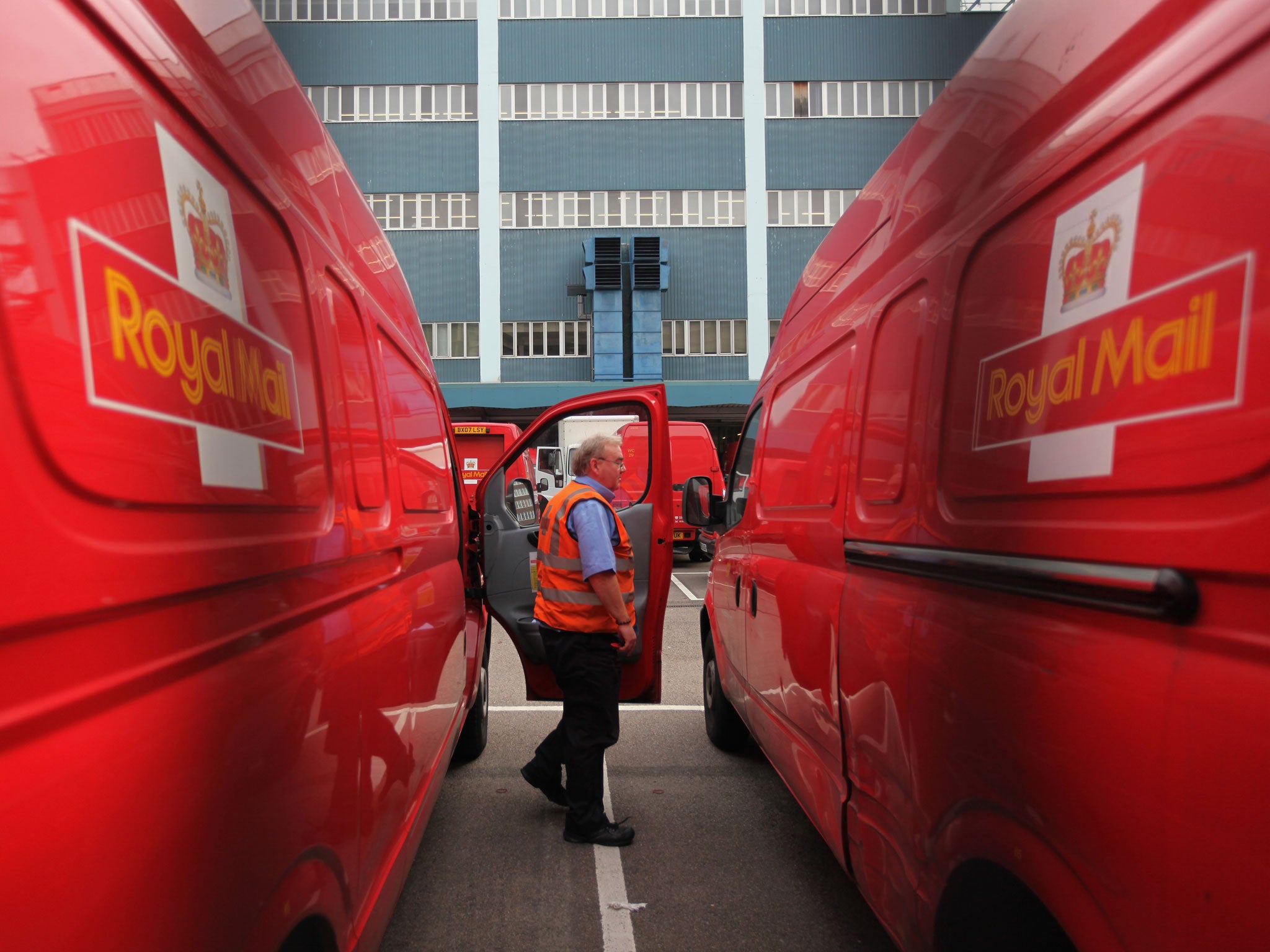The Privatisation of Royal Mail: Are you ready to deliver your own letters?
Vince Cable has assured us a privatised Royal Mail would maintain all its services. Of course it will, because making a profit will hardly figure in their plans at all.


They really would sell their granny, this Government. Even Margaret Thatcher wouldn’t sell the Royal Mail, but this lot’s doing it, so you can only conclude they would genuinely sell their granny. They’d float her on the stock exchange, and when she said, “I’m worried about who might buy me, dear. I’ve been with Grandpa Albert 54 years and at my age I don’t like change”, they’d say, “You have to be modernised, Granny. You’re shedding money at the moment, what with mobility scooters and lifts to your friends’ funerals, but that will all change with private investment. You can be used for testing whether new brands of shampoo are toxic, or beaten for re-enactments of muggings in Crimewatch. Once you’re free from outdated regulations you’ll be profitable in no time.”
Vince Cable has assured us a privatised Royal Mail would maintain all its services, including those that don’t make a profit. Of course it will, because making a profit will hardly figure in their plans at all. The report at the annual general meeting will begin: “Shareholders will be delighted to learn that although there’s no dividend this year, we had a huge success in the third financial quarter, when we delivered a small teddy to the Scilly Islands. It cost a fortune but you should have seen that little girl’s face.” Even the Daily Mail warned that a privatised service mustn’t end up like the “tax-dodging overcharging water and energy companies”.
But who could ever have guessed that the businesses that bought the utilities would invest in them only because they planned to take more back out? There’s no accounting for that sort of unpredictable bad luck, and it surely can’t happen again.
The sell-off is a necessity, apparently, because the service needs an “injection of capital”. This makes sense, as long as you accept that for the past 357 years, the Royal Mail has existed without being privatised. It has never needed any capital before. Luckily, everything it’s needed has been free. In the 18th century, it won some ships in a bet in a pub. Then in the 20th century, the chairman won a fleet of red vans on an episode of Bullseye.
But now, for the first time, there’s no choice, as the Royal Mail is currently owned by the British Government, which can’t inject any capital itself because presumably it has no access to money. Maybe it put it all in a teapot as it doesn’t trust the banks, and it can’t remember where it is, and when the Royal Mail said it needed an injection of capital the Treasury got in a panic so it had no choice but to sell off the whole service.
The argument for privatisations in the past has been that the industry being sold off, such as railways or steel, was losing public money, but the Royal Mail is profitable already. Even so, to encourage investors, they’re only selling off the profitable bits, and we’re keeping responsibility for pensions, and the stuff that costs money. But Vince Cable could go much further. For example, if we recognised we can’t carry on being spoilt by having the post delivered, and agreed to collect it ourselves from whoever was sending it, the new business could sack the postmen and begin to create a truly modern service.
The Daily Telegraph suggests the sell-off will create a “bonanza for the banks”, so at least they’re going to benefit from it. And it’s about time they had a bit of luck, as they’ve put in so much effort in recent years for very little reward.
As with the privatisations of the 1980s, it’s proclaimed as a measure that will spread shares to all ranks of society. For example, it’s encouraging that one finance company charitable enough to take part in the bonanza is Goldman Sachs, which has been appointed as one of the co-ordinators of the sell-off. So at last, humble types, such as the board of Goldman Sachs, will feel they have a stake in society.
And at last, the service will be opened up to business opportunities denied it as a state‑run bureaucracy. The postman will hand over your letters and ask: “Would you like a pastry with that?” They can learn from the rail companies and introduce peak times, so if you want a letter to be delivered before 11.30am, the stamp costs £450. We should also expect some inevitable cuts in staff and safety, and possibly the world’s first envelope disaster resulting in more than 300 casualties.
Luckily we don’t have to guess what will happen, as we have the precedent of previous industries getting sold off. In the 1980s, the selling of gas, water and BT would create a new share-owning democracy. By the end of it all, the percentage of people owning shares was less than it had been before.
But the energy companies went on to become Britain’s best-loved institutions, cheap and efficient and so easy to deal with. And now the Royal Mail can go the same way, putting prices up only two or three times a week, and creating a system so simple to use that instead of buying stamps from outdated Post Offices, we have to ring a call centre that takes so long to answer that it’s quicker to cycle to Devon and deliver it yourself.
Join our commenting forum
Join thought-provoking conversations, follow other Independent readers and see their replies
Comments
Bookmark popover
Removed from bookmarks